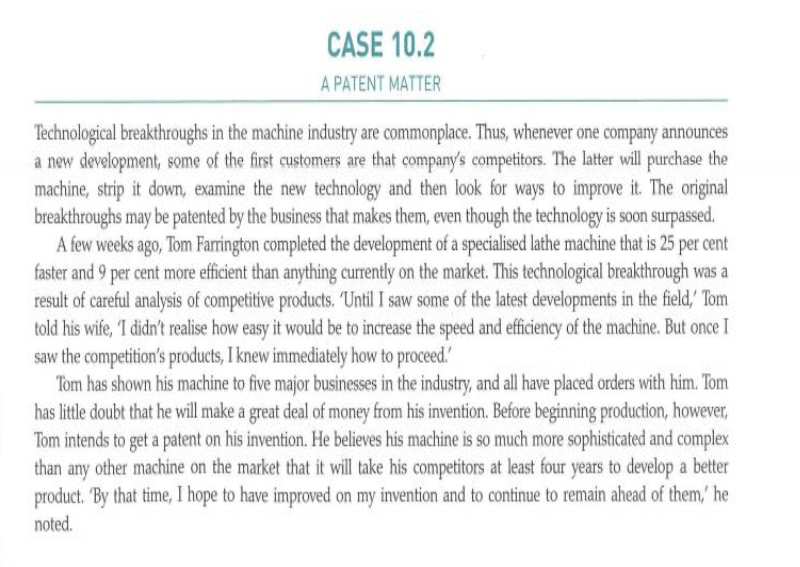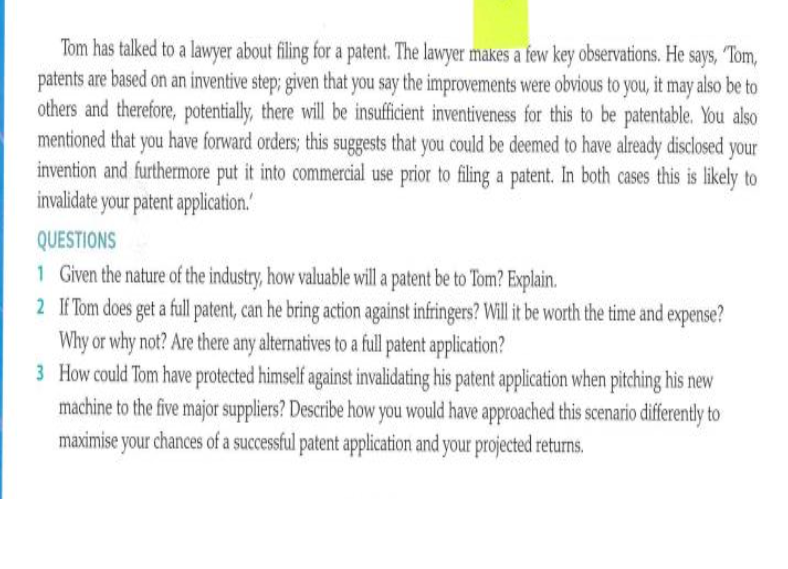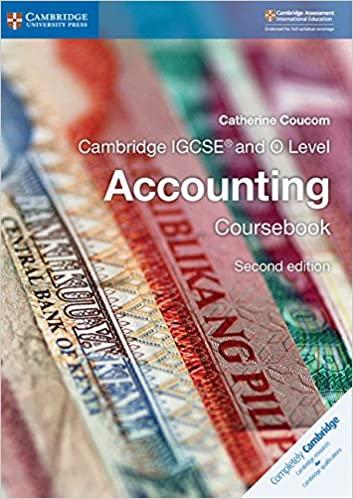CASE 10.2 A PATENT MATTER Technological breakthroughs in the machine industry are commonplace. Thus, whenever one company announces a new development, some of the first customers are that company's competitors. The latter will purchase the machine, strip it down, examine the new technology and then look for ways to improve it. The original breakthroughs may be patented by the business that makes them, even though the technology is soon surpassed, A few weeks ago, Tom Farrington completed the development of a specialised lathe machine that is 25 per cent faster and 9 per cent more efficient than anything currently on the market. This technological breakthrough was a result of careful analysis of competitive products. "Until I saw some of the latest developments in the field,' Tom told his wife, "I didn't realise how easy it would be to increase the speed and efficiency of the machine. But once I saw the competition's products, I knew immediately how to proceed.' Tom has shown his machine to five major businesses in the industry, and all have placed orders with him. Tom has little doubt that he will make a great deal of money from his invention. Before beginning production, however, Tom intends to get a patent on his invention. He believes his machine is so much more sophisticated and complex than any other machine on the market that it will take his competitors at least four years to develop a better product. 'By that time, I hope to have improved on my invention and to continue to remain ahead of them,' he noted.Tom has talked to a lawyer about filing for a patent. The lawyer makes a few key observations. He says, Tom, patents are based on an inventive step; given that you say the improvements were obvious to you, it may also be to others and therefore, potentially, there will be insufficient inventiveness for this to be patentable. You also mentioned that you have forward orders; this suggests that you could be deemed to have already disclosed your invention and furthermore put it into commercial use prior to filing a patent. In both cases this is likely to invalidate your patent application.' QUESTIONS 1 Given the nature of the industry, how valuable will a patent be to Tom? Explain. 2 If Tom does get a full patent, can he bring action against infringers? Will it be worth the time and expense? Why or why not? Are there any alternatives to a full patent application? 3 How could Tom have protected himself against invalidating his patent application when pitching his new machine to the five major suppliers? Describe how you would have approached this scenario differently to maximise your chances of a successful patent application and your projected returns








